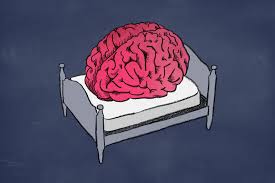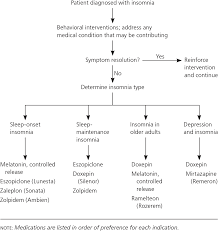Dementia Insomnia Treatment: Strategies for Better Sleep
Dementia patients often experience insomnia, which can exacerbate their symptoms and impact their overall quality of life. Finding effective treatment strategies to improve sleep in individuals with dementia is crucial for their well-being.
Understanding Dementia-Related Insomnia
Insomnia in dementia patients can result from various factors, including changes in the brain that affect the sleep-wake cycle, medication side effects, anxiety, and discomfort due to physical ailments. Sleep disturbances can lead to increased confusion, agitation, and behavioral issues in individuals with dementia.
Treatment Approaches
When addressing insomnia in dementia patients, it’s essential to consider non-pharmacological interventions as the first line of treatment. These may include:
- Sleep Hygiene: Establishing a regular sleep schedule, creating a comfortable sleep environment, and avoiding stimulants before bedtime can promote better sleep.
- Behavioral Therapy: Cognitive-behavioral techniques can help individuals with dementia develop healthier sleep habits and address any anxiety or restlessness that may contribute to insomnia.
- Light Therapy: Exposure to natural light during the day and minimizing exposure to artificial light at night can help regulate the sleep-wake cycle.
- Physical Activity: Engaging in gentle exercise during the day can improve sleep quality and promote relaxation at night.
Hypnotherapy for Dementia Insomnia
Hypnotherapy is emerging as a promising treatment modality for insomnia in dementia patients. By accessing the subconscious mind through hypnosis, individuals with dementia can be guided to relax deeply, reduce anxiety, and create positive associations with bedtime. Hypnotherapy sessions tailored to address specific sleep issues can help improve overall sleep quality and duration.
Consulting a Healthcare Professional
If you or a loved one with dementia is experiencing persistent insomnia despite trying various strategies, it’s important to consult a healthcare professional specializing in geriatric care or sleep medicine. They can provide personalized recommendations and determine if additional interventions or medications are necessary.
Seven Beneficial Strategies for Managing Insomnia in Dementia: Enhancing Health and Cognition Without Medication
- Non-pharmacological interventions reduce reliance on medications with potential side effects.
- Improved sleep quality can lead to enhanced cognitive function and memory retention in dementia patients.
- Establishing a regular sleep schedule promotes better overall health and well-being.
- Behavioral therapy techniques address underlying causes of insomnia, leading to long-term benefits.
- Light therapy helps regulate the sleep-wake cycle, improving daytime alertness and nighttime restfulness.
- Physical activity contributes to better sleep quality and can reduce agitation and restlessness in dementia patients.
- Hypnotherapy offers a non-invasive treatment option that can positively impact sleep patterns and overall mental health.
Challenges in Treating Insomnia in Dementia Patients: Limited Effectiveness, Side Effects, Resistance to Behavioral Strategies, and Treatment Complexity
- Limited effectiveness
- Potential side effects
- Resistance to non-pharmacological interventions
- Complexity of treatment
Non-pharmacological interventions reduce reliance on medications with potential side effects.
Non-pharmacological interventions for treating insomnia in individuals with dementia offer the significant benefit of reducing reliance on medications that may have potential side effects. By focusing on strategies such as sleep hygiene, behavioral therapy, light therapy, and physical activity, healthcare providers can help manage sleep disturbances in dementia patients without resorting to medication. This approach not only minimizes the risk of adverse drug reactions but also promotes a more holistic and personalized treatment plan that addresses the underlying causes of insomnia.
Improved sleep quality can lead to enhanced cognitive function and memory retention in dementia patients.
Improved sleep quality plays a crucial role in enhancing cognitive function and memory retention in dementia patients. Adequate and restful sleep allows the brain to consolidate memories, process information, and support overall cognitive health. By addressing insomnia in individuals with dementia and promoting better sleep habits through effective treatment strategies, we can potentially slow down cognitive decline and improve the quality of life for those living with this condition.
Establishing a regular sleep schedule promotes better overall health and well-being.
Establishing a regular sleep schedule is a crucial pro of dementia insomnia treatment as it promotes better overall health and well-being. Consistent bedtime and wake-up times help regulate the body’s internal clock, known as the circadian rhythm, which plays a significant role in determining the quality of sleep. By maintaining a predictable sleep routine, individuals with dementia can experience improved sleep patterns, enhanced cognitive function, reduced daytime fatigue, and better mood stability. A regular sleep schedule also supports physical health by allowing the body to undergo essential repair processes during restorative sleep stages. Ultimately, prioritizing a consistent bedtime routine can contribute to a higher quality of life for individuals dealing with dementia-related insomnia.
Behavioral therapy techniques address underlying causes of insomnia, leading to long-term benefits.
Behavioral therapy techniques offer a valuable pro in the treatment of dementia-related insomnia by targeting the underlying causes of sleep disturbances. By addressing factors such as anxiety, restlessness, and poor sleep habits, behavioral therapy aims to bring about sustainable improvements in sleep quality and duration. This approach focuses on changing behaviors and thought patterns that contribute to insomnia, ultimately leading to long-term benefits for individuals with dementia. Through personalized strategies and interventions, behavioral therapy can help establish healthier sleep routines and promote better overall well-being in the long run.
Light therapy helps regulate the sleep-wake cycle, improving daytime alertness and nighttime restfulness.
Light therapy is a beneficial proponent of dementia insomnia treatment as it aids in regulating the sleep-wake cycle, leading to enhanced daytime alertness and improved nighttime restfulness. By exposing individuals with dementia to natural light during the day and minimizing artificial light exposure at night, their circadian rhythm can be better synchronized, promoting a more balanced and rejuvenating sleep pattern. This adjustment not only boosts cognitive function and mood during waking hours but also facilitates deeper and more restorative sleep, contributing to overall well-being and quality of life for those affected by dementia-related insomnia.
Physical activity contributes to better sleep quality and can reduce agitation and restlessness in dementia patients.
Physical activity plays a crucial role in improving sleep quality and reducing agitation and restlessness in dementia patients. Engaging in gentle exercise not only promotes physical well-being but also helps regulate the sleep-wake cycle, leading to more restful nights. By incorporating regular physical activity into their routine, individuals with dementia may experience improved overall sleep patterns, decreased behavioral disturbances, and enhanced feelings of relaxation and well-being. The positive effects of physical activity on sleep can contribute to better management of dementia-related insomnia and ultimately enhance the quality of life for both patients and caregivers.
Hypnotherapy offers a non-invasive treatment option that can positively impact sleep patterns and overall mental health.
Hypnotherapy presents a compelling advantage in the realm of dementia insomnia treatment by offering a non-invasive approach that holds the potential to significantly influence sleep patterns and enhance overall mental well-being. Through gentle guidance and relaxation techniques, hypnotherapy can help individuals with dementia establish healthier sleep routines, reduce anxiety, and cultivate a sense of calmness that contributes to improved quality of sleep. This non-pharmacological intervention not only targets the symptoms of insomnia but also addresses broader aspects of mental health, promoting a more holistic approach to enhancing the overall well-being of individuals grappling with dementia-related sleep disturbances.
Limited effectiveness
One significant con of dementia insomnia treatment is the limited effectiveness of certain strategies for all individuals. While various treatment approaches exist, not every method may yield positive results for each person with dementia. This lack of universal efficacy can result in frustration for both patients and caregivers, as persistent sleep disturbances continue despite efforts to address them. It underscores the complex nature of insomnia in dementia and highlights the need for personalized and adaptable treatment plans to better manage this challenging aspect of the condition.
Potential side effects
Potential side effects are a significant con of dementia insomnia treatment. Some medications or interventions commonly used to address insomnia in individuals with dementia may lead to unwanted side effects or interactions with their existing medication regimen. This can pose risks to their overall health and well-being, highlighting the importance of careful consideration and monitoring by healthcare professionals when implementing treatment strategies for sleep disturbances in dementia patients. It is crucial to weigh the benefits against the potential side effects to ensure the safety and effectiveness of the chosen treatment approach.
Resistance to non-pharmacological interventions
Individuals with dementia may encounter a significant challenge when it comes to non-pharmacological interventions for treating insomnia due to resistance or difficulty in adhering to such approaches. Implementing sleep hygiene practices or engaging in behavioral therapy may be met with resistance from individuals with dementia, making it challenging to establish and maintain consistent routines that promote better sleep. This resistance can stem from cognitive impairments, communication barriers, or a general aversion to change, ultimately hindering the effectiveness of non-pharmacological treatments for insomnia in this population.
Complexity of treatment
Managing insomnia in dementia patients presents a significant con due to the complexity of treatment. Addressing sleep disturbances in individuals with dementia typically involves a multifaceted approach that encompasses various strategies such as establishing sleep hygiene practices, implementing behavioral therapies, considering light therapy, and incorporating physical activity. However, the challenge lies in consistently implementing and maintaining these interventions, as well as the need for ongoing adjustments based on individual responses and changing circumstances. The intricate nature of managing insomnia in dementia patients underscores the importance of personalized care and continuous monitoring to optimize treatment outcomes.



